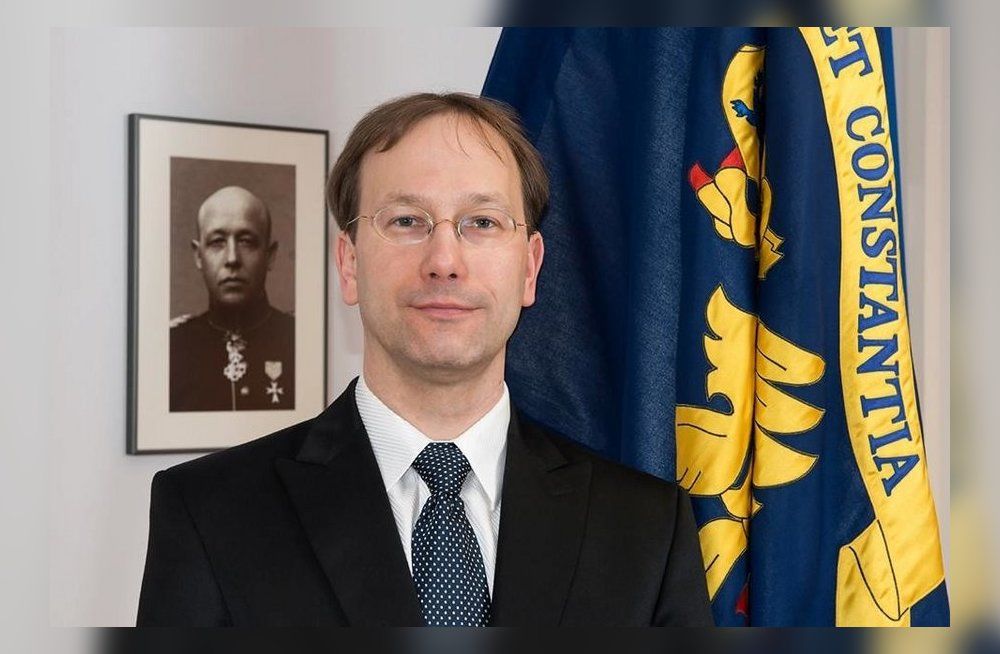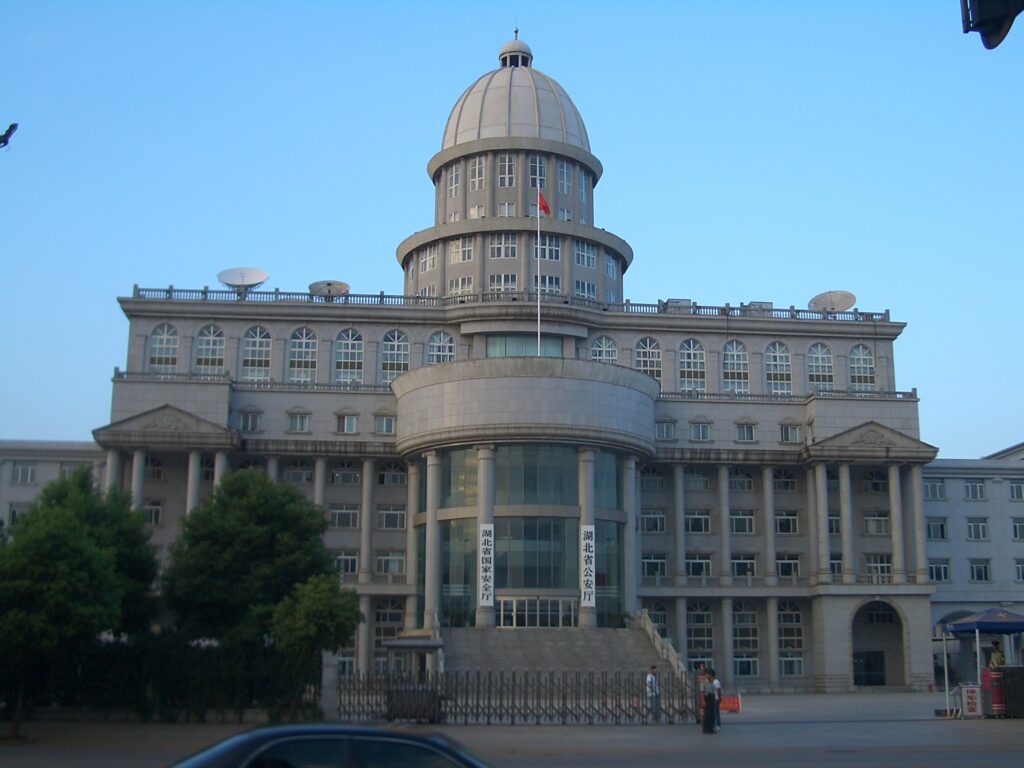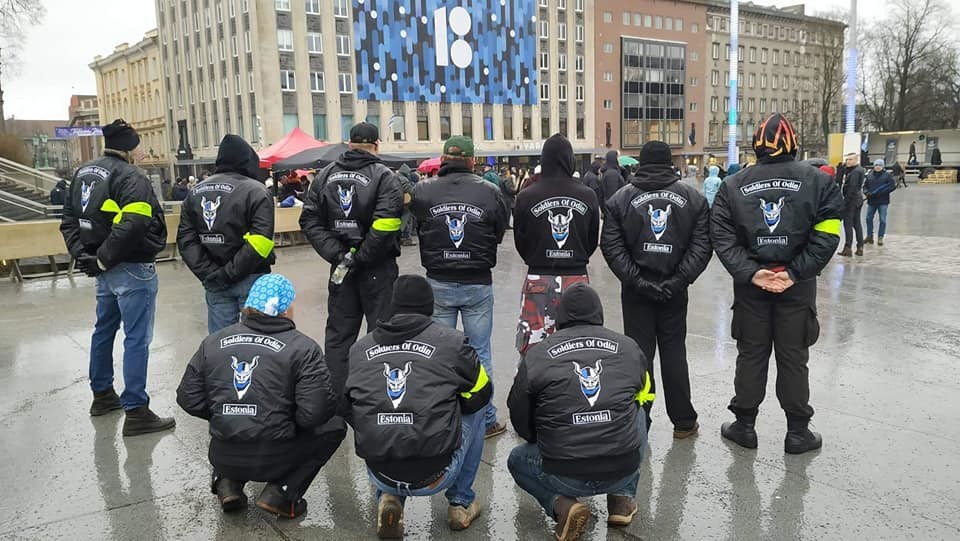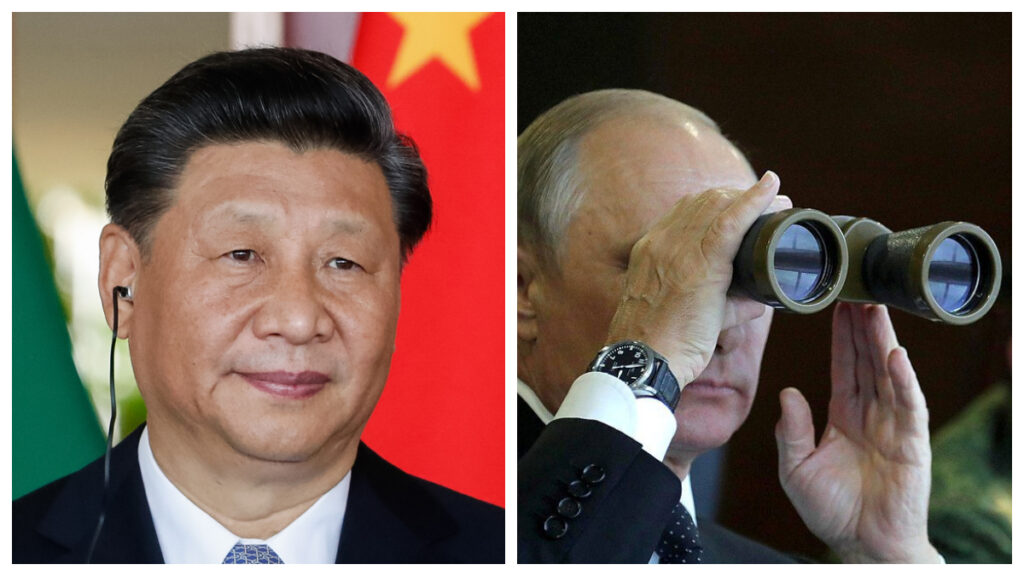According to the 2020-2021 annual review by the Estonian Internal Security Service – colloquially known as kapo – Russian espionage against the country remained a continuous and permanent threat even during the coronavirus pandemic, although the spying is now done more in the cyberspace; Estonia is also facing the danger of the special services of the communist People’s Republic of China.
In the foreword of the annual review, the director of kapo, Arnold Sinisalu, emphasises that 2020 and 2021 will be market by the acronym COVID-19 for a long time. “From our point of view, the pandemic has not significantly changed national security, but it can give opportunists the hope of fishing more easily in muddied water,” he wrote.
According to Sinisalu, the Kremlin has tried to exploit these turbulent times by using propaganda to improve its reputation and break the unity of the European Union and the West.
“The West has remained true to its values and used international sanctions, the effectiveness of which we can only assess from a distance, at some point in the future. Sanctions imposed for attacks on Ukraine’s sovereignty and territorial integrity, as well as for blatant violations of the human rights of individuals and the use of chemical weapons, will certainly have some effect on the Kremlin’s compliance with international law. But it will clearly not change the Muscovites’ goals and patterns of behaviour,” the director of kapo said.

According to the Estonian Internal Security Service, the Kremlin’s influence and intelligence activities against Estonia didn’t decrease at the height of the pandemic. However, closed borders and restrictions on public gatherings led local leaders of the Kremlin’s policies of division to go online.
China is interested in Estonia
“Espionage by the Russian Federation against Estonia is a continuous and permanent threat. In the crisis caused by the virus, the physical movement and activities of foreign spies were significantly limited, but more effort was put into espionage in cyberspace,” Sinisalu noted.
Another danger that Estonia is facing, in addition to the Russian espionage activities, is the emergence of the special services of the communist People’s Republic of China.
“For some time now, Beijing’s actions have caused concerns for counterintelligence. The danger is no longer theoretical; it has been confirmed by the first court decision. Chinese intelligence recruited an Estonian citizen,” the report said.
According to kapo, Tarmo Kõuts, a long-term employee of an Estonian university, had established a relationship with the Intelligence Bureau of the Joint Staff Department of the Central Military Commission of the People’s Republic of China, or the Chinese military intelligence.

“Although the Chinese military intelligence officers originally appeared to be employees of a Chinese think-tank, their true face and involvement in intelligence became apparent quite quickly. Kõuts met Chinese military intelligence representatives in various Asian countries.
The researcher’s professional work was related to the defence field, which is why he had also been granted access to state secrets,” the Estonian Internal Security Service said.
“He was ready to talk to Chinese military intelligence about his research, but, when detained, he had not been able to disclose any state secrets. In return for useful information, the researcher received cash and paid foreign trips to Asia, accommodation in expensive hotels and banquets in Michelin-starred restaurants, among other things.”
“Angry young men” may become a threat
According to kapo, the long-term goal of Chinese intelligence was to gain access to secret information, but the security police managed to prevent the leak of state secrets by taking timely action. Regarding the case, there is another person under custody charged with the same activities. Her case is pending at the Harju County Court.
The report also points out that a new generation of extremists is emerging in Estonia. Regardless of their right-wing or left-wing views, kapo “is interested in instigators of violence in whose case there is reason to believe crimes of physical violence may be committed”.

Director Sinisalu wrote in his foreword that the far-right has not been addressed much in the recent annual reviews.
“Who do we mean? In general, these are angry young men – often little more than boys – who get themselves worked up in the echo chambers of social networks and vow to change the world through violence. Some radicals believe that societal order is falling apart and will be followed by a race war. For their part, they will do their best to help shape such a future,” according to the report.
“As of today, there are no terrorist groups operating in Estonia. At the same time, the Estonian state and its inhabitants are still a target for jihadist extremists. In Europe, large-scale and high-casualty attacks have become more difficult to carry out due to large-scale countermeasures by security and law-enforcement agencies.”
Estonian officials the target of North Korean cyberattacks
“International terrorism is looking for new ways to raise money from supporters, and European countries need to find new ways of preventing this. One example is the attempt to instigate the financing of terrorism through cryptocurrencies among people from high-risk countries,” kapo pointed out.
In addition to violent extremism and terrorism, in the digital world, countries that at first glance have no direct connection to Estonia – such as North Korea – are also interested in the country.
“The explanation is probably simple: as a non-permanent member of the UN Security Council, Estonian officials have been the target of cyberattacks by this Stalinist dictatorship.”

The Estonian Internal Security Service is a central national security institution of Estonia. Its purposes are centred on enforcing constitutional order. It has primary investigative jurisdiction in some offences committed by state officials; countering terrorism; incitement to hatred; crimes against humanity and peace, including war crimes; illegal handling and trafficking of firearms, ammunition, explosives, radioactive material or other strategic materials; and the protection of state secrets. It also fills counterintelligence duties.
While many of the Estonian Internal Security Service’s activities are classified, its overview of the status of national security is published yearly as the agency’s annual review – available for download as PDF documents on the kapo website.
Cover: Xi Jinping, the president of the People’s Republic of China (photo by Alan Santos, shared under the Creative Commons CC BY 2.0 licence) and Vladimir Putin, the president of Russia. Collage by Estonian World.

